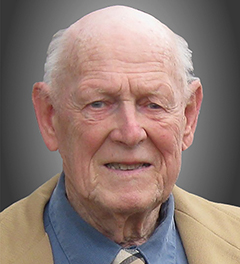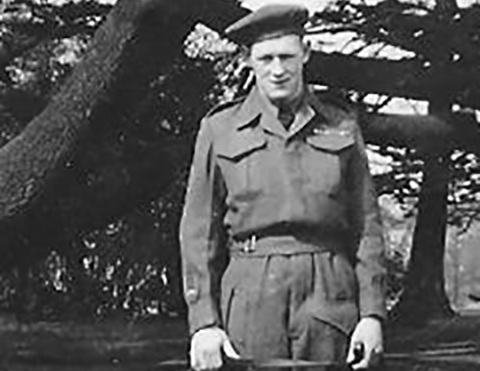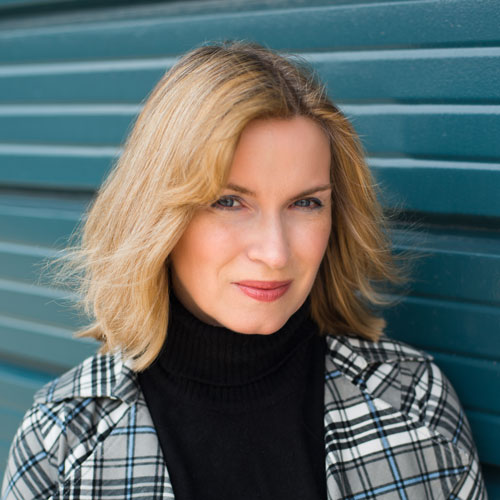As they approach their 100th birthdays, Canadians often expect to receive a card from the Queen. But when the monarch turned 90 last year, Gerard Frost figured that she deserved a commemorative card of her own. Thoughtful to the end, he sat down to write one.
It was a small gesture, but typical of the generous life that Frost led before he died earlier this year at the age of 96. As a decorated war veteran, successful business executive and tireless volunteer, Frost (BASc 1951) exemplified the personal dedication, hard work and sacrifice of those born in what has come to be known as the Greatest Generation.
A native of Toronto, Frost was 16 years old when he received news at school that his father – a First World War hero who was wounded at Vimy Ridge – had suffered a fatal injury after falling off a ladder. After this tragic event, “my father was really instrumental in helping his family survive that ordeal,” recalls his daughter, Deirdre Frost.
Still a teenager when the Second World War broke out not long after, he quickly enlisted. Over the next six years, Frost saw active service in England, France, Belgium, Holland and Germany. He was a member of the 1st Canadian Division that liberated the Dutch town of Apeldoorn in April 1945, and was in Paris on VE-Day in May.
Frost continued to cultivate his legacy of service long after the war. When he returned to Canada with his English war bride, Margaret, he enrolled as a chemical engineering student at U of T. As Deirdre recalls, her father would volunteer to drive fellow students the 40 kilometres from Toronto to Ajax, Ontario (and back), in his Model T. (At the time, engineering students were taught at a former munitions plant in Ajax owing to a lack of classroom space downtown to accommodate the enrolment surge following the war.) “The students were very grateful that they could depend on him to take them back and forth to campus,” she says.
After graduating from U of T, Frost moved to the United States to take a job as a chemical engineer in Pittsburgh and later spent 15 years at Union Carbide in New York. He completed an MBA in 1968 and opened his own water conditioning company in Westchester County, New York, which he ran for 40 years. Deirdre says he maintained a “constant dialogue” with first-year engineering students at U of T, especially those who were interested in water purification. For this work, he received an Arbor Award in 2013. He remained helpful in many other ways as well, baking homemade bread and canning fruit, which he generously gave away to family and friends. Frost had the aptitude to repair all kinds of everyday objects that his friends and neighbors brought to him. “He loved to garden and was adapt at fixing just about anything. He quite often fixed my car,” recalls his best friend, Nick Vitale.

Toward the end of his life, Frost was recognized for his wartime service. He received the distinguished Legion d’Honneur Award from the French government in appreciation for his bravery and dedication during the liberation of France. The Canadian brigadier-general came to his bedside to present him with the medal, pinning it to his pillow at a gathering of family and close friends on the day before he died.
This was the last honour in a life full of small and large acts of kindness and consideration. The Queen wrote back to Frost after receiving his card, not in honour of the centenary that he would never have, but simply to thank him for his kind thoughts and personal remembrance.






